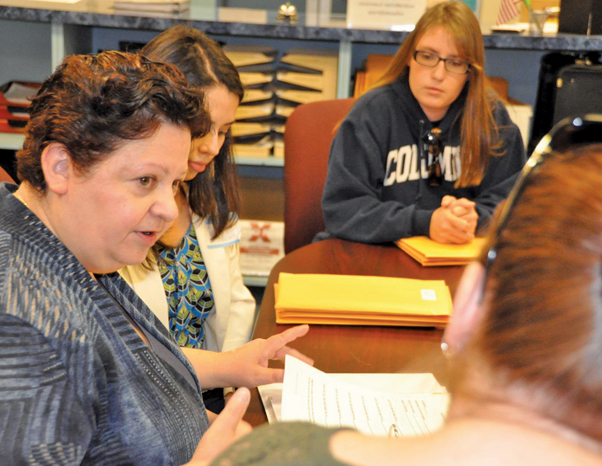The U.S. Air Force Key Spouse program operates under the USAF Services and is thriving at March Air Reserve Base, under the leadership of Valerie Fioretta, 452nd Air Mobility Wing Airman and Family Readiness director, and Analiza Sell, a Key Spouse Mentor for the base.
Fioretta and Sell conduct regular initial and refresher training for any spouse who is interested in joining the ranks. Sell said she became a Key Spouse because she felt alone and isolated from her Air Force community and she didn’t want other spouses to feel that way.
“It’s the Air Force, and we are family. Therefore, we take care of each other,” she said. “Through Key Spouse training, I continue to learn how important it is to connect with spouses. We are a wealth of experience, and I learn new resources that help me to support others.”
Key Spouse training exposes spouses to their duties and responsibilities which include:
- Providing peer-to-peer support to unit families
- Acting as a link between unit leadership and families
- Providing information and referral assistance to families during crisis
- Welcoming families and cultivates relationships within the unit
- Maintaining and updating community resources and services
- Actively participating in unit’s Hails & Farewells, squadron functions, spouses’ group functions, and A&FRC meetings/training
- Tracking and maintaining a unit family call log; recording action taken and providing feedback regarding family readiness issues
- Troubleshooting issues and reporting back to families and/or unit team
- Serving as a role model/mentor for unit spouses
- Attending scheduled meetings with the unit commander and/or first sergeant and providing feedback regarding family readiness issues
- Recording volunteer hours and information disseminated on a data spreadsheet
“You’re who people are going to want to go to when they need support,” Fioretta said to the group. “Get a list of everyone in your squadron and let them know who you are and your roles as a Key Spouse. Establish that rapport now, before a deployment happens.”
Fioretta said there are currently 40-45 Key Spouses trained at March Field and that they are improving retention because they are retaining families. “When the spouse is happy…”
She added that the Key Spouse program has improved the quality of life by giving spouses the tools they need to be more resilient or stronger.
“You have the pulse of what’s going on in the unit,” said Elaine Valentine, clinical social worker, 452nd Air Mobility Wing. “Be part of the team to help one another.”
To learn more about the Key Spouse program, contact Valerie Fioretta at 951-655-5322 (valerie.fioretta@us.af.mil) or Analiza Sell at 661-435-6581 (sellproductions@msn.com).




